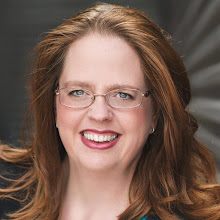The panelists who participated in the Middle-Grade/Young Adult Discussion Panel were: Rob Wells, Allyson Condie, Dan Wells, James Dasher, Janette Rollison, J. Scott Savage, and Tamra Norton.
The following are the notes that I took from the questions asked of the panel.
Q&A
- What is the difference between Middle-Grade and Young Adult? MG starts at chapter books and goes up to seven grade. YA adult then goes from 8th grade on up to 16 years of age. In the publishing industry a book is no longer YA is the main character is older than 16 years old. At that point the book is marketed as an adult book.
- What is the difference in word count between MG and YA? Word count is generally less in middle grade unless it is a fantasy novel. Fantasy novels in general tend to be longer in word count over other genres.
- What are other differences between MG and YA? The younger the reader, the focused the problem for the main character is. (i.e. dealing with achne or lost love vs. saving the world).
- What control do authors have over their book covers? Authors have very little control over covers. Bookstores have the greatest control (especially B&N) over covers. They know what sells. Book covers are like plumage on a bird. They are what attract the attention of the readers enough to get them to pick up the book and read it. If the bookstores feel that the cover won't attract enough attention, they will not purchase it from the publisher, or insist that the cover be changed.
Other Thoughts/Comments:
- On average kids tend to read books with characters that are two years older then themselves.
- Young Adult book has more attention given to opposite sex and romance. Middle Grade doesn't care as much.
- If you are going to write MG/YA make sure to talk to kids in that age range while you are writing. That way you make sure that your characters/plots are age appropriate. Then have those kids read you manuscript when you are done and provide you with feedback and what needs improvement.
- With kids books try to present suspense/scare without adding graphic descriptions. It can be done. Keep in mind that responsibility scares kids and that fantasy needs the scary elements (don't hold back).
- Empower your characters.
- Keep in mind how parents might react to having their kids read your book.
- The non-supernatural stuff scares people more than the supernatural. If you think your book is too scary make it a little more supernatural.
- Middle Grade books are uniformly geared to both genders.
- Boys read as much as girls. They just don't read as many novels. Usually boys read more on the Internet and things that are video game related.
- If you are going to write about drinking, sex, or drugs, then you have to include the consequences that that choice will bring up.
- Book One will always be the better seller of a series.
Summerlist
11 years ago

